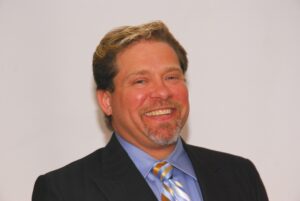Building Wealth as a Driver or Operator (Overview)
When drivers or operators search me out for financial advice too often they are looking for some “trick” or “loophole” to gain a financial edge. The ability to generate income from operating a highway tractor is only one part a person’s life. It may be an important part of life but certainly not to be considered the only focal point. In fact, if a person wishes to gain and retain after tax wealth they almost certainly need to focus on becoming wise and retain understanding of their craft. Discipline, structure and prudence are keys to building long term after tax wealth.
There are many life mentors available on line. In fact when I began researching for these PODCASTS I found HUNDREDS of life mentors and “experts”. Admittedly, I have found some very helpful in the development of these PODCASTS. I am not interested in selling you books, programs or courses that “help” you become wealthy. I’m not in this to make a buck. I have no sponsors other than “Making Your Miles Count” Accounting firm. It is this accounting firm that allows me to help the industry with some critical issues. If I can help operators become more successful or save some operators from their false fantasies I would count my efforts a success.
Over thirty years ago I had a dream, if I could have a job or business that provided me income so I could study, teach and help people without worrying about money it would be my dream job. As near as I can tell, I have seen that dream come to life in my book series, articles in Over the Road Magazine and now these PODCASTS. I cannot help people with everything, but I can provide a proven plan to build wealth enough to retire with dignity and maybe even enough to change your world significantly. You don’t need a PHD or even an MBA.
I was talking to an office administer at a carrier over 25 years ago. She told me a story of a driver they hired a number of years prior. The driver was not typical. He was not a particularly bright man. He was a loner, and probably should have taken one or two more showers a week than he was used to. He was assigned a scheduled run that put him on the road about five and a half days a week. After two years he was called in the office. He was nervous and shy. The payroll lady was a little sheepish, she asked him if he had not been depositing his pay checks, because according to the payroll account there was a long list of outstanding checks. He smiled a bit and reached into his back pocket and pulled out a thick wallet. From the unfolded leather he pulled a stack of un-deposited checks. He told the clerk that once his cash runs low he takes out the next check and makes a deposit. Slowly over two years he accumulated nearly six months of checks. Payroll called him in because after six months those checks will not be able to be cashed, they will be stale. Hearing the reasoning of the driver, the clerk gave him some advice. She set him up with auto payments at his bank and had his surplus funds invested in mutual funds. If everything stayed the same, that man is now a very rich truck driver.
After two years of driving he accumulated six months of checks so he was able to save 25% of his net pay. That’s impressive. His lifestyle was much lower than his income.
A number of years ago I spoke with two separate clients. The first was a young married couple. They had three very young kids and lived in an apartment complex while her husband drove a truck. We were going over their finances and she made an off-hand comment like “…and of course we have our personal living expenses..”. I asked “How much do you need?” $2500 per month she replied. I assumed she didn’t actually know how much she was spending, but I was wrong. After going through their finances I realized she knew exactly what she was doing. Their family expenses were $2500 per month. I was impressed. I followed them over the years. They grew their small family worth step by step until they were able to retire to another country in comfort.
I had another client, a husband and wife only, in their early sixties. They ended up with two highway tractors because he didn’t like how the first drove. He was in bad financial shape trying to make two payments with one truck while trying to sell his first. I asked him how much do they need personally per month. He said $10,000. I immediately thought he misunderstood my question. “Personal not business” I said. But, again I was wrong. They had every kind of debt all the way down to a hot tub payment. They needed $10,000 per month just to “survive”.
Given the right structure an operator can build a great financial future, or with the wrong structure a life of perpetual crisis. It’s not just personal financial issues its business too. Building wealth is a combination of personal and business discipline.
Being a successful operator requires a clear set of short and long term goals and maybe even a sound exit plan.

Can you do an article about investing through / with the corporation?
That’s a good idea. I’ll pass this along to Robert.